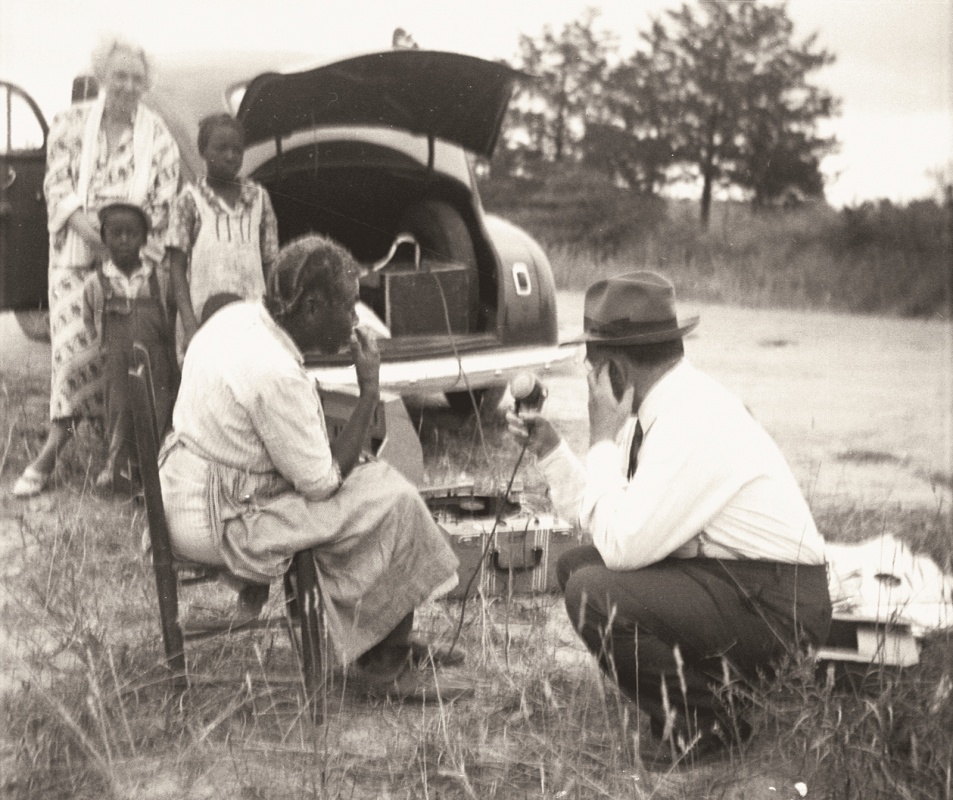Classic cowboy songs are so ingrained in American popular culture and history that it might seem as though plaintive strains of Home on the Range could be heard when the first settlers felt the West Texas wind over the plains, and Red River Valley seems as ancient as the stream itself.
However, those songs, and many more like them, were first collected by Texas folklorist John Avery Lomax, who not only collected such songs from oral tradition and preserved them for popular culture but also made them a subject for scholarly study. In fact, Harvard professors first recognized the value of such study before Lomax’s University of Texas teachers did.
In 1869, the Lomax family left Mississippi and headed for Texas by covered wagon with 2-year-old John in tow. The Lomaxes settled on a farm in the Bosque River Valley near Meridian. “I couldn’t have been more than 4 years old when I first heard a cowboy sing and yodel to his cattle,” Lomax wrote in his 1948 book, Adventures of a Ballad Hunter. “I was sleeping in my father’s two-room house in Texas beside a branch of the old Chisholm Trail.” Young John wrote down the words of the trail hands’ songs on scratchpads and on pieces of cardboard.
Lomax’s higher education began in 1887 with a year at Granbury College. He then taught school for several years in Clifton and Weatherford, and from 1895 to 1897, he studied at the University of Texas at Austin. There, he showed his collection of cowboy songs, “a roll of dingy manuscript written out in lead pencil and tied together with a cotton string,” to professors of Shakespeare and philosophy, who found them completely devoid of cultural significance. “So that night in the dark,” wrote Lomax, “out behind Brackenridge Hall, I made a small bonfire of every scrap of my cowboy songs.”
In 1906, Lomax found encouragement as a postgraduate student at Harvard University. When his American literature professor learned that Lomax was interested in writing a dissertation on cowboy songs, he introduced Lomax to professor George L. Kittredge, a pioneer in American folklore studies. “That moment was the real beginning of my connection with the Archive of American Folk Song, established many years later in the Library of Congress,” Lomax wrote in Adventures of a Ballad Hunter.
Back in Texas in 1908, married and with a family to support, Lomax received the first of several fellowships from Harvard that allowed him to devote time and travel to collecting cowboy songs. Hauling one of Thomas Edison’s phonograph cylinders into saloons, rodeos and cattle camps, Lomax found that cowboys were reluctant to sing into the machine’s large horn, a sort of primitive microphone.
The ballad hunter persisted. In Fort Worth, he collected lyrics to The Old Chisholm Trail, of which one cowboy claimed to know 89 verses. At a campground on the west fork of the Trinity River, a Roma songstress sang Lomax “the first blues that I ever heard, moving me almost to tears.”
In Abilene, the professor learned The Buffalo Skinners from an old hunter who had lived the song. “It happened in Jacksboro in the spring of ’73,” the story began. A man named Crego hired some hands to hunt bison in the Panhandle and stiffed them on their pay. They killed Crego “and left his damn ol’ bones to bleach.”
Lomax collected Home on the Range in a San Antonio saloon from an African-American bartender who had learned the song as trail-drive cook. He included the classic in his 1910 book, Cowboy Songs and Other Frontier Ballads.
By the time the ballad hunter wrote his 1948 autobiography, he had traveled hundreds of thousands of miles on his quest. In the 1930s, sons Alan and John Jr. accompanied him on treks to collect Afri-can-American folk songs, often from prison inmates. He toured northern cities with the singer Lead Belly. Alan Lomax went on to a distinguished musicology career, and the younger John Lomax released a CD of his late father singing The Buffalo Skinners and other folk songs a cappella.
Lomax’s archive is today preserved in the university’s Dolph Briscoe Center for American History, and the University of Texas Press recently published a reprint of the classic Adventures of a Ballad Hunter.
“John Lomax rescued Home on the Range, Midnight Special and 10,000 other songs from obscurity and made them part of a new American canon of traditional music,” said John Wheat, music archivist at the Briscoe Center. “He helped launch a process of discovery of our cultural roots that continues long after his passing.”
Gene Fowler is an Austin writer who specializes in history.


